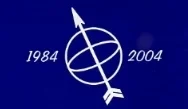Jul90
archive > Log > Log1990
Hong Kong

Changing law of salvage

HARRY BRAZIER is a solicitor and was Hong Kong's representative at the recent international conference which led to the 1989 International Salvage Convention.
He told us that the first element of salvage is that it must be a voluntary act carried out by a volunteer. The second element is that there must be a danger to property on the sea whether it is the ship or the cargo, and the third element is that there must be success.
Domestic laws vary between one country and another. This affects salvage in the types of payment and how it is assessed i.e. whether it is according to the circumstances, merits or values and how you assess values.
The factors which are taken into account when considering the size of the award are: risk to the salvors and salved property, risk to life, expenses, time involved, facilities brought to bear and investment which is a very important factor. A lot of people think that is unfair, but a lot of salvors have a very sizeable operation behind them and it is generally argued that it is in the hull underwriters' interests that this continues.
The above is the basis of the Lloyd's Open Form and that was the case until 1980 after the Torrey Canyon incident in March 1967, and the Amoco Cadiz incident in 1978, on which the litigation still has to be concluded. It was agreed that one of the problems to be faced is how to encourage a salvor to enter into a salvage contract from which his remuneration is dependent upon the value salved when there is unlikely to be any great salved value and out of pocket expenses will have to be incurred. This was thought about and then moves made in two directions to overcome this problem, firstly by industry and secondly by Government.
Lloyd's took the initiative and came up with the first substantial modification to Lloyd's Open Form. It was called LOF80 and it varied the 'no cure-no pay' system. In addition to providing his best endeavours to salve the ship and cargo it now provides for the salvor to use his best endeavours to prevent the escape of oil from the vessel while performing salvage services. In the case where the property being salved is a laden tanker and the services are unsuccessful, or only partially so, he should receive reasonable expenses plus an increment which should not exceed 15 per cent. Many of the salvage operations in the Gulf might not have been attempted if it were not for this new provision.
Governments, through IMO, decided to modify the salvage convention and started on this in 1978. Taking into account a number of recent disasters, they not only considered oil but various other categories of cargo, such as chemicals and nuclear substances. As a result the 1989 International Salvage Convention was adopted, which will have the effect of extending the LOF80 to any cargo likely to damage the environment. It provides that if salvage is successful in preventing environmental pollution then the salvor will get costs plus up to 30 per cent, while in exceptional circumstances plus up to 100 per cent.
The new convention will come into force after it is ratified by 15 countries. This may take years, possibly as long as up to the year 2005. In the meantime it is hoped that Lloyd's will lead the field by taking the bones out of the 1989 convention and incorporating it into a Lloyd's Open Form 90, whereby they will extend the safety net from oil pollution up into all kinds of chemical cargoes and give the arbitrator discretion to award salvors their expenses on a commercial basis plus anything between 30 per cent and 100 percent.
He concluded by saying that he thought LOF80 has been spectacularly successful with increasing salvage to laden tankers, and, that if there is support from the shipowning community and hull underwriters to get an LOF90 off the ground on the basis of increasing it to cover chemicals, then we will be fairly well on the way to seeing an improvement in protection to the environment. The shipowners will also benefit, otherwise they could not depend on having any salvage assistance because there would not be any salvors out there to render assistance due to lack of insurance for the salvors. Also they would not have the ability to take a casualty into harbour and conclude the salvage service.
We were then shown a video made by the International Salvage Union titled 'No Cure-NO Pay'. This illustrated the points made by the speaker very well.
Contributed by P. R. Owen, FNI
Seaways July 1990

